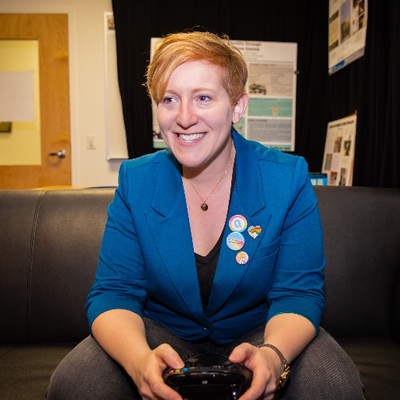I was super excited to learn that, this coming spring, I’ll be temporarily taking over Richard Lemarchand‘s amazing production course on experimental games. Richard is an amazing designer and teacher, and it’s truly an honor. Plus, I get to do a lot to make the course my own — which, for me, means challenging students to tackle topics of identity and difference at the same time they find their creative voices through the rapid prototyping. Here’s the course description. It should be a rollercoaster of a semester!
At its core, creative expression is a playful process. Some of the most unique and moving video games of recent years have emerged from what might seem like the silliest or most unusual ideas. What if you played as the wind (Flower, thatgamecompany)? What if you translated a gender transition into mini-games (Dys4ia, Anna Anthropy)? What if you told a story about childhood abuse through the mechanics of a puzzle-based platformer (Papa y Yo, Minority Games)? Each of these games plays, in some way, with our expectations for what a game is and who we are as players.
The spirit of experimentation is key to imaginative innovation. Experimentation gives us the opportunity to try new things, to fail fast and fantastically, and to explore aspects of ourselves we might otherwise leave out of our games. This course provides a challenging, encouraging, and above all playful space for students to experiment with their own game-making practices. Inspired equally by the absurd, poetic games of the mid-20th-century surrealists and the growing interest among indie designers in exploring identity through games, this course is a chance to make games that are goofy, strange, serious, or deeply personal—often all at the same time.
Over the course of the semester, students will work on 8 games. These games will be informed by weekly readings, in-class discussions, and peer-to-peer critique. Some readings will introduce students to the field of avant-garde games. Others will prompt students to think in new ways about games’ potential for artistic and cultural expression. This course is fast-paced and demanding. Students will be expected to work across a variety of platforms and to reflect critically, articulately, and often on their own goals as game-makers.

